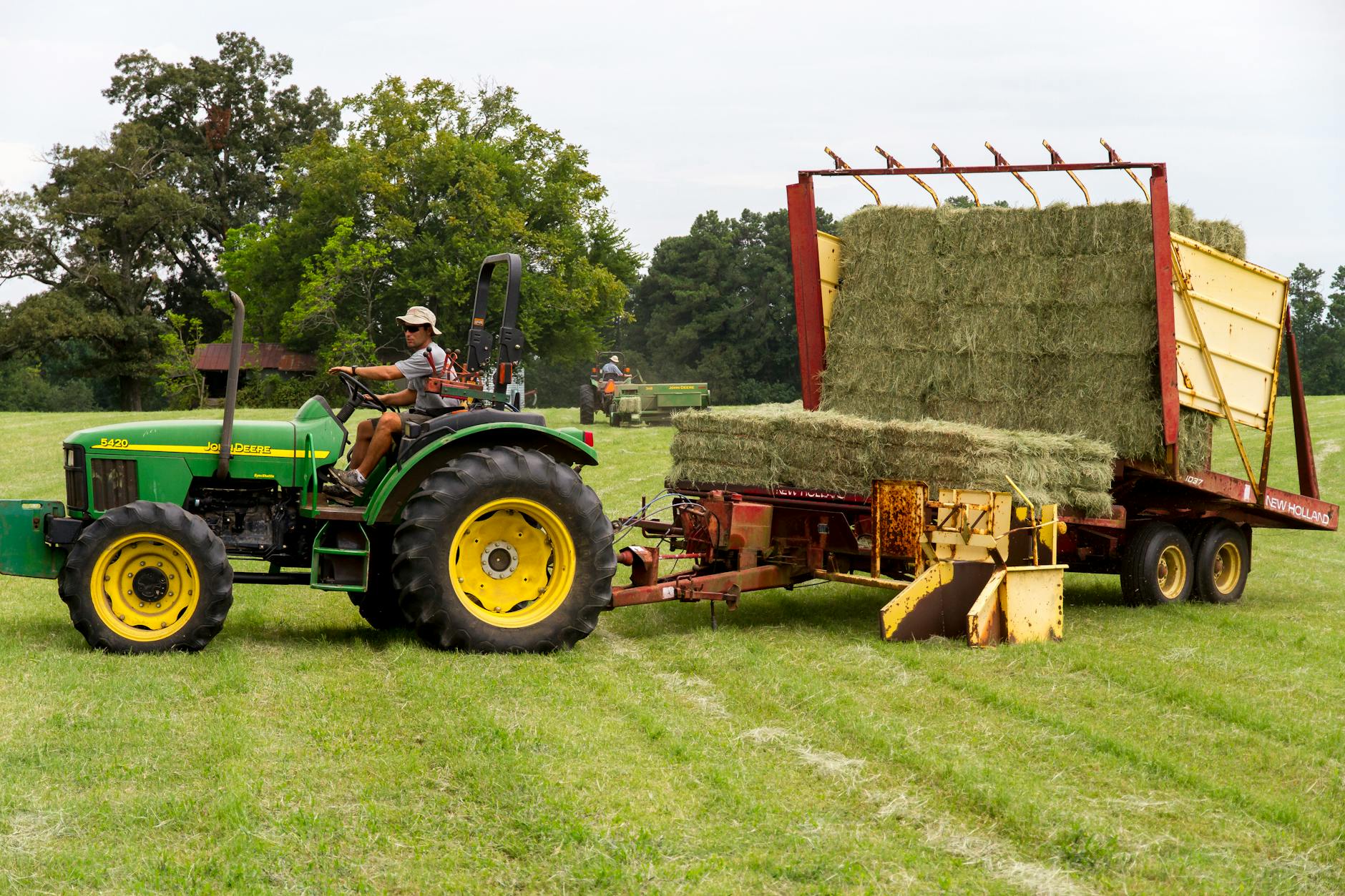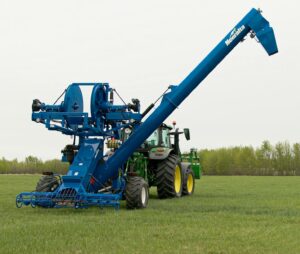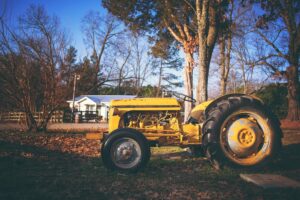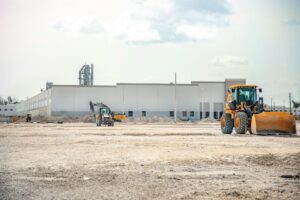Tractors are essential tools for farmers, landscapers, and construction professionals, but their cost can vary widely depending on factors like size, brand, features, and condition. If you’re wondering, “How much would a tractor cost?” you’re not alone.
In this article, we’ll break down the factors that influence tractor pricing, provide average cost ranges for different types of tractors, and offer tips for finding the best deal on your next purchase.
Factors That Influence Tractor Costs
Before diving into specific price ranges, it’s important to understand the key factors that affect how much a tractor costs:
- Type of Tractor: Tractors come in various types, including compact utility tractors, sub-compact tractors, row-crop tractors, and heavy-duty agricultural tractors. Each type is designed for specific tasks and comes with a different price tag.
- Brand: Well-known brands like John Deere, Kubota, Mahindra, and Case IH often command higher prices due to their reputation for quality and reliability.
- Horsepower (HP): Tractors with higher horsepower are generally more expensive because they can handle heavier workloads and larger implements.
- Features and Technology: Modern tractors with advanced features like GPS guidance, automated steering, and precision farming tools are more expensive than basic models.
- Condition: New tractors are the most expensive, while used or refurbished models are more affordable. The condition of a used tractor significantly impacts its price.
- Attachments and Implements: The cost of a tractor can increase significantly if you purchase additional attachments like loaders, mowers, plows, or backhoes.
- Dealer vs. Private Seller: Buying from a dealer often comes with added benefits like warranties and financing options, but it may be more expensive than purchasing from a private seller.
Average Cost Ranges for Tractors
To give you a better idea of how much a tractor costs, here’s a breakdown of average price ranges for different types of tractors:
1. Sub-Compact Tractors
- Price Range: 10,000to10,000to25,000
- Horsepower: 15 to 25 HP
- Best For: Small farms, landscaping, and hobby farming
- Examples: Kubota BX Series, John Deere 1 Series
Sub-compact tractors are the smallest and most affordable option, making them ideal for light-duty tasks like mowing, tilling, and hauling. They are also easy to maneuver in tight spaces.
2. Compact Utility Tractors
- Price Range: 20,000to20,000to50,000
- Horsepower: 25 to 60 HP
- Best For: Medium-sized farms, landscaping, and property maintenance
- Examples: Kubota L Series, John Deere 2 Series
Compact utility tractors are versatile machines that can handle a wide range of tasks, from plowing fields to clearing snow. They are a popular choice for small to medium-sized operations.
3. Agricultural Tractors
- Price Range: 50,000to50,000to150,000+
- Horsepower: 60 to 200+ HP
- Best For: Large-scale farming and heavy-duty tasks
- Examples: John Deere 8R Series, Case IH Magnum Series
Agricultural tractors are designed for large-scale farming operations and can handle demanding tasks like plowing, planting, and harvesting. They often come with advanced technology and features.
4. Specialized Tractors
- Price Range: 30,000to30,000to100,000+
- Horsepower: Varies
- Best For: Specific tasks like orchard farming, vineyard management, or road maintenance
- Examples: Narrow-track tractors, high-clearance tractors
Specialized tractors are designed for unique applications and often come with custom features to suit specific needs.
5. Used and Refurbished Tractors
- Price Range: 5,000to5,000to50,000+
- Horsepower: Varies
- Best For: Budget-conscious buyers or those looking for vintage models
- Examples: Older John Deere, Ford, or Massey Ferguson models
Used tractors can be a cost-effective option, but it’s important to carefully inspect the machine and verify its condition before purchasing.
Additional Costs to Consider
When budgeting for a tractor, don’t forget to factor in these additional costs:
- Attachments and Implements: Attachments like loaders, mowers, and plows can add thousands of dollars to the total cost.
- Maintenance and Repairs: Regular maintenance is essential to keep your tractor running smoothly. Budget for oil changes, tire replacements, and potential repairs.
- Fuel and Operating Costs: Larger tractors with higher horsepower consume more fuel, which can significantly impact your operating expenses.
- Insurance and Registration: Depending on your location, you may need to insure and register your tractor.
- Storage: If you don’t already have a barn or shed, you may need to invest in storage to protect your tractor from the elements.
Tips for Finding the Best Deal on a Tractor
- Determine Your Needs: Before shopping, identify the tasks you’ll be using the tractor for and the features you require. This will help you avoid overspending on unnecessary capabilities.
- Compare Brands and Models: Research different brands and models to find the best value for your budget. Read reviews and ask for recommendations from other farmers or professionals.
- Consider Used Tractors: If you’re on a tight budget, consider purchasing a used tractor. Be sure to inspect the machine thoroughly and ask for maintenance records.
- Shop Around: Visit multiple dealerships and browse online marketplaces to compare prices and find the best deal.
- Negotiate: Don’t be afraid to negotiate the price, especially if you’re buying from a dealer. You may be able to secure a discount or additional perks like free delivery or extended warranties.
- Financing Options: If you can’t afford to pay upfront, explore financing options offered by dealers or third-party lenders. Be sure to compare interest rates and terms to find the most affordable option.
Is a Tractor Worth the Investment?
While tractors can be a significant investment, they are often worth the cost for those who rely on them for their livelihood. Tractors can save time, reduce labor costs, and increase productivity, making them an essential tool for many industries. Additionally, a well-maintained tractor can retain its value and provide years of reliable service.
For hobby farmers or those with limited budgets, used or smaller tractors can be a more affordable option that still delivers excellent performance.
Conclusion
So, how much would a tractor cost? The answer depends on the type, brand, features, and condition of the machine. Whether you’re looking for a compact utility tractor for your small farm or a heavy-duty agricultural tractor for large-scale operations, there’s a model to suit every need and budget.
At TractorHubs.com, we’re here to help you find the perfect tractor at the right price. Explore our extensive listings, compare models, and connect with trusted sellers to make your next tractor purchase with confidence. Remember, investing in a tractor is not just about the upfront cost—it’s about finding a machine that will meet your needs and deliver long-term value.



